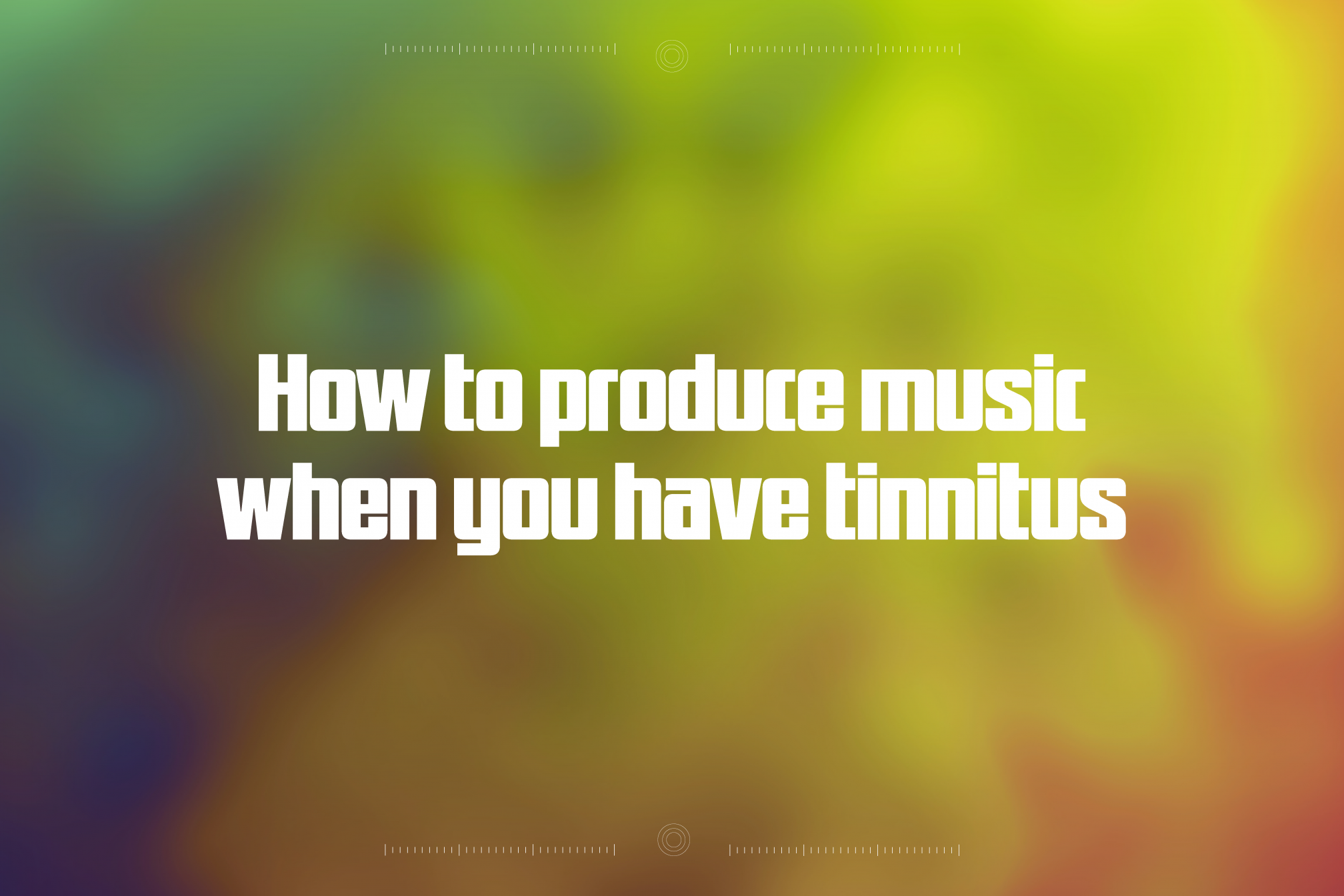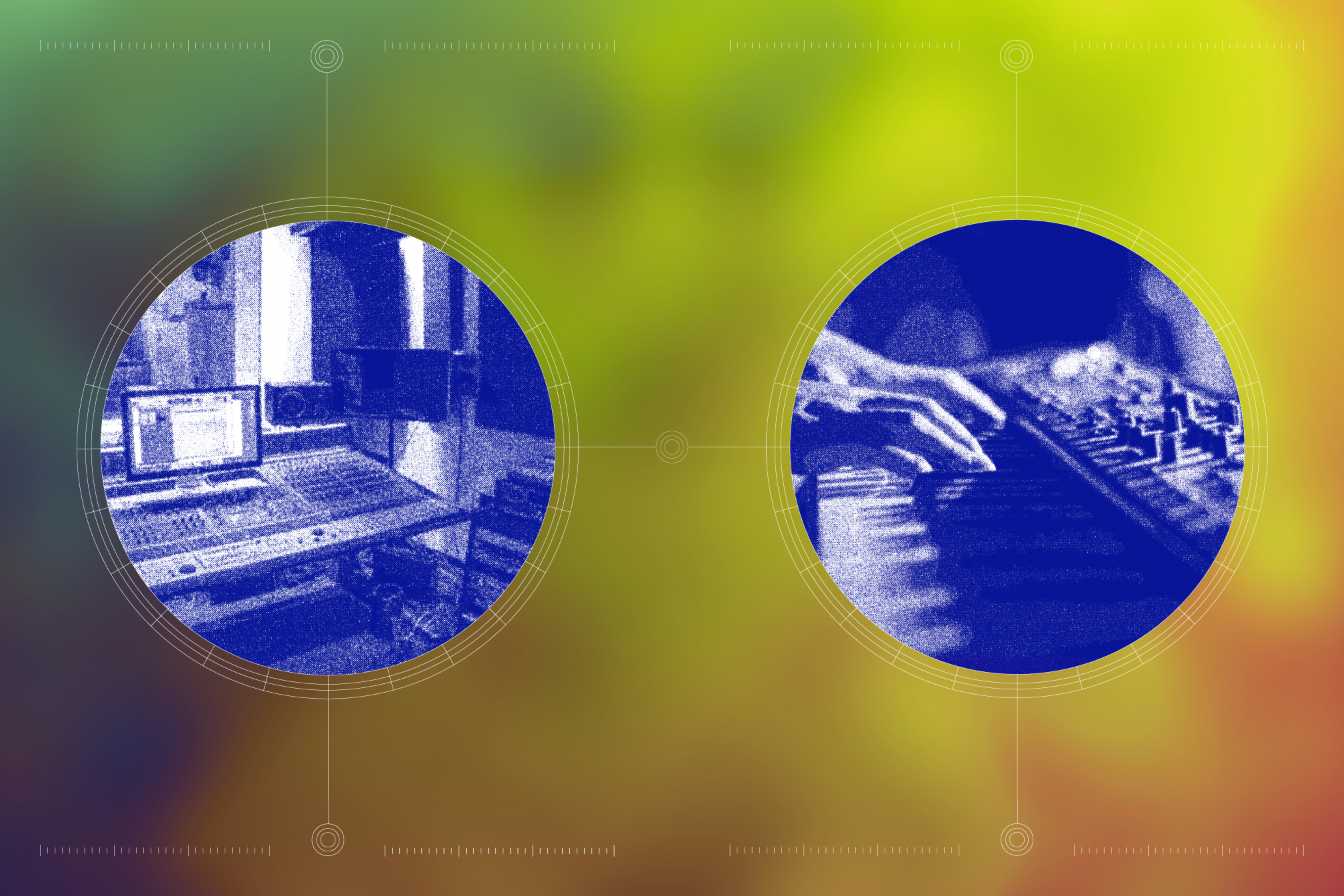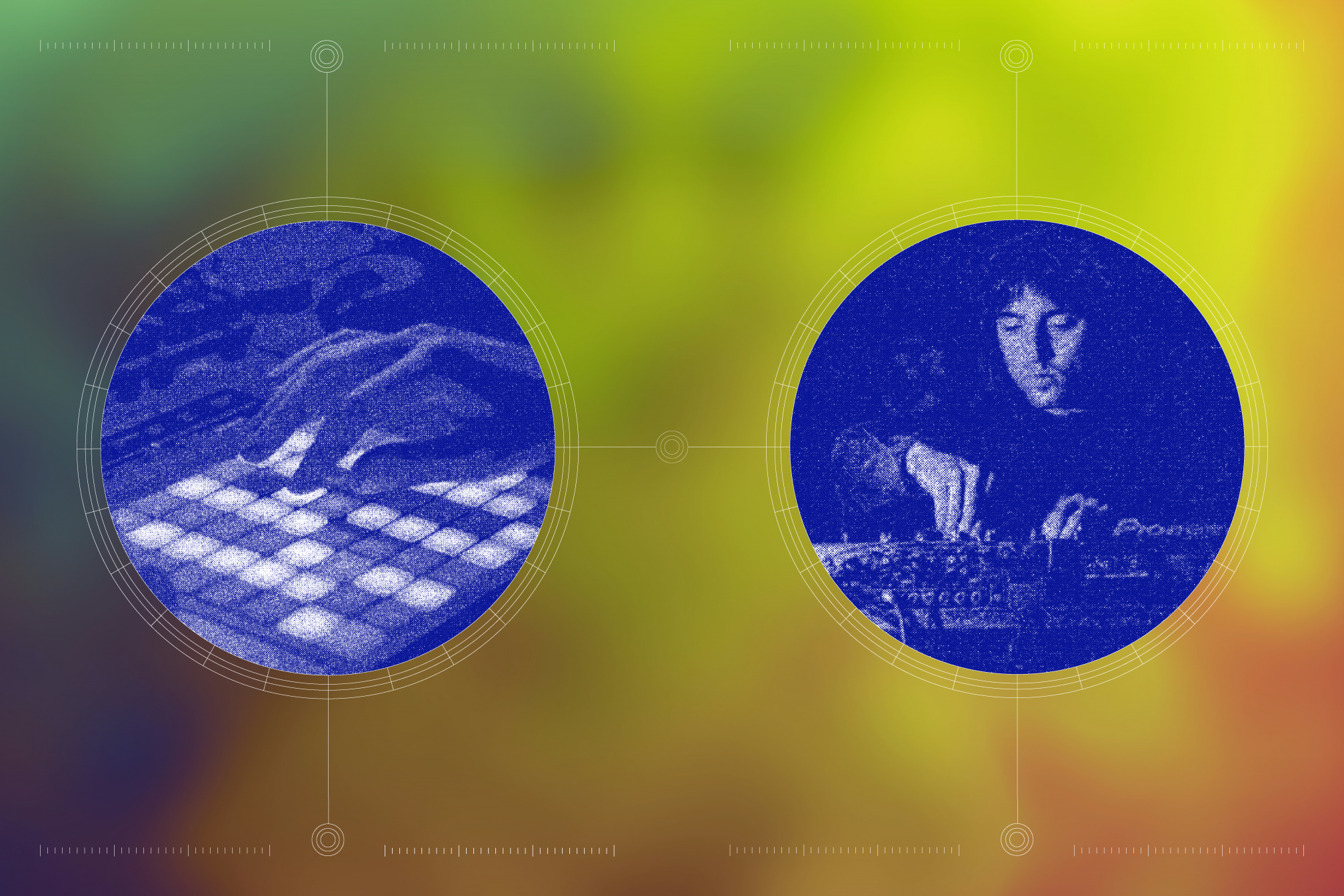 Features
Features
5 artists share their tips on how to produce when you have tinnitus
Mixmag speaks to TSVI, Lyra Pramuk, LDLDN, Sha Sha Kimbo and Minor Science about the impacts of tinnitus on production - and the best ways to cope in the studio
Tinnitus Awareness Week 2024 takes place across February 5 - 11. We're joining the campaign with a series of features raising awareness about ear damage and promoting protection. Check out the ongoing series across our website and socials.
Navigating life with tinnitus is difficult, particularly if your career revolves around music. For many who suffer, tinnitus is described as a ringing or humming in one or both ears that can, at times, be debilitating. Its causes are numerous, although the most common are thought to be existing health issues and hearing loss, head injuries, and exposure to loud noises - the latter putting DJs, producers, ravers, and those in the music industry at a heightened risk of suffering with tinnitus.
Read this next: 9 ways to make living with tinnitus easier
Tinnitus affects one in seven adults in the UK and around 25 million adults in the US, with its prevalence increasing by age. As reported by our Tinnitus Awareness Week guest editor Seb Wheeler, who suffers from sudden sensorineural hearing loss (SSHL) and tinnitus as a result, the long-term effects can have a damaging impact on your mental wellbeing which can often be hard to ignore. For Seb, his sudden hearing loss and onset of tinnitus forced him to stop his work in the music industry temporarily, causing a disconnect from his life and work in club culture and dance music.
“Tinnitus is your brain trying to fill in gaps and receive signals, it’s trying to listen for sounds that aren’t there because the sensors are missing,” says UK-hailing producer Minor Science of subjective tinnitus, the most common form. “It’s so much in your mind”. Minor Science began noticing symptoms of tinnitus after suffering from hearing loss in his right ear as a child, which became more pronounced in his early 20s. “I was worried I’d made it worse by playing in clubs or listening to loud music,” he adds. “For me, tinnitus sounds like a mid-range whistling frequency, and also a rushing, roaring white noise.”

More often than not, tinnitus is untreatable and the best solutions come in the form of therapy or simply ‘ignoring it’. For producers who spend their day-to-day behind a screen and booming studio monitors, both professional and hobbyist, this can be an arduous experience that dampers work and an enjoyable pastime.
“Tinnitus can mess up your day, it can distract you,” explains US producer SHA SHA KIMBO, who began noticing the effects of tinnitus following years of clubbing in her 20s. “Some nights the tinnitus is so bad it keeps me awake, and when I’m stressed, it gets even worse,” she says. “As producers, we’re taught to hear sound differently like catching a sample when watching a TV show or noticing a specific frequency. It's really difficult when you have tinnitus because it’s like a non-stop soundwave in your brain at all times.”
Read this next: "My life changed overnight": Dealing with sudden hearing loss and tinnitus
Tinnitus can also be accentuated by small, usually unnoticeable habits such as drinking caffeine or having a restless night's sleep. "Sometimes when I'm very stressed, have had a lot of caffeine, haven't slept enough, or have been to a club, my tinnitus will get worse," says Berlin-based producer and vocalist Lyra Pramuk. Lyra began noticing tinnitus in her right ear in her early 20s, years before she began going on nights out (although later made worse by clubbing), which was originally thought to be brought on by jaw, neck, and muscular tension. "It's important to remember that tinnitus is connected to the entire central nervous system, so when we are tired, stressed, or sick, tinnitus can be amplified."
For London producer and NTS resident LDLDN, who began noticing the symptoms of tinnitus 15 years ago, it’s become increasingly noticeable at any time of day. “As I started producing and DJing out more, my tinnitus became much more present,” he says. “Having tinnitus definitely affects your quality of life, both inside and outside music.”
We’ve spoken to five producers from across the music industry about their experiences with tinnitus as part of our ongoing series for Tinnitus Awareness Week 2024. They spoke about how it impacts their life and work, and shared some advice for those who suffer on how to navigate the complex nature of producing music with tinnitus. Check out their tips below.

1 Adjust your setup and turn down the volume
It’s tempting to crank up the volume when you’re excited about the music you’re working on, but as your ears slowly adjust to louder settings, you risk losing your volume limit. “It’s taken me years to discipline myself, but I’ve learned to work at low levels and quiet volumes,” says Minor Science. “Depending on your setup, if you have a mixing desk you can mark it with tape, otherwise you can see how many volume bars feel good on your laptop or use monitoring software to assess the loudness in Ableton,” he adds. “The temptation is always to turn the volume up when you get excited, but if you set a level, you know you can take it back there every half an hour and be disciplined with yourself.”
For Italy’s TSVI, who first detected tinnitus during the pandemic as a result of hearing loss - which he originally put down to stress or sickness - turning the volume right down when producing is key. “When I was making music previously, I didn’t really use a monitor and would just use headphones at a loud setting,” he explains. “I told myself it was fine, but I didn’t know the damage it was doing. I now only use headphones if I have to in the final stage of production, but I mostly use speakers at a really low volume.”
2 Wear earplugs while you work on music
Earplugs are a sworn-by hearing safety tip for most DJs and music industry workers, and should always be a necessary addition to your bag on a night out. “I’m trying to use my custom hearing protection more often, even if I’m craving the intensity,” says Lyra Pramuk. “Thankfully, I have been pretty good about using ear protection in the past few years,” she says. “I think it's important to have tools and strategies ready to protect us, both as an audience member and as a performer or DJ, but I also think it's important to stay joyful about music.”
They might not be such a common accessory outside of the club, but for some producers, earplugs are needed in the studio, too. “I always wear ear protection,” says SHA SHA KIMBO. “A lot of people don’t think it’s a big deal when you’re just in your home studio, but you can do so much damage in so many different ways,” she says, explaining that she previously blew an eardrum by plugging a soundcard into a cranked-up keyboard, resulting in a loud buzzing noise. “Having your earplugs in before you even start producing will allow your ears to adjust to the noise,” she says.
Read this next: How tinnitus affects DJs' life and work in music
3 Invest in good quality headphones
It’s no secret that the better quality a pair of headphones is, the less harsh it will be on your ears. Investing in a pair of good quality headphones is vital if you suffer from tinnitus but want to get stuck into production on a regular basis, and means that your ears won’t be left in further disrepair - provided you keep the volume at a moderate level. “I think getting the best quality headphones or speakers you can afford is always worthwhile for minimising issues with tinnitus and hearing loss,” says Minor Science. “Having better quality headphones means you'll be able to hear detail in the music without being tempted to turn it up super loud, so it's kinder on your ears”.
In some cases, it’s suggested to buy filters to add to your headphones if they don’t already come with them, or if your ears are feeling extra sensitive. These are soft, protective pieces of padding that go inside the headphones to purify sound as it travels into your ears. “Try not to use in-ear headphones which increase the intensity of sound in your ears,” explains LDLDN. “Over-the-ear, or open-backed headphones are better.”
4 Add acoustic treatment to the walls of your studio
Whether you’re making music in your bedroom or a flush studio, one helpful way to reduce harsh, raw sounds from doing further damage to your ears is to treat the walls of the space you work in. Particularly when it comes to mixing and mastering a track, having a treated studio can help just that tiny bit - even if that means tacking up some convoluted foam or pushing a few soft furnishings into your studio. “Treatment on your walls definitely helps,” says SHA SHA KIMBO. “Sound bounces out of the speakers and into the walls, but raw sound will travel into your ears which is always an issue. Softening that sound with wall treatment can help.”
By adding sound dampening, it also reduces the stress on your ears, allowing you to produce for lengthier bouts. “The good thing about a well-treated room is that you don't have to blast music very loud, you can just keep the volume quite low and still hear all the details,” says TSVI. “The ears are not going to get tired, and you'll be able to make music for a longer period of time.”
Read this next: The different types of tinnitus and how to spot the signs
5 Take regular breaks
Perhaps the most common tip of any when producing music with tinnitus is to take regular breaks. Hearing one track on repeat can “burn a hole in your ear”, explains SHA SHA KIMBO, which can be avoided by taking regular breaks and “sitting in silence or walking in nature” before coming back to the studio. “You’ll be able to hear what’s popping out or if a stem is too loud - it’s a different way of producing,” she explains. LDLDN agrees that keeping the levels lower and the sessions shorter can help, and might even make your music better. “Long, loud sessions in the studio are not advisable because the ringing afterwards is unpleasant,” he says. “The science says that prolonged production sessions affect your perception of sound, so you end up with poorer mixes.”
Similarly, Minor Science advises a system of producing on-and-off for 20-minute periods, with three-minute breaks in between. “20 minutes listening to music at a regular level is plenty, it’s healthy to just take three minutes away,” he says. “It’s a necessary break and means that by the end of the day, you don’t have a tired feeling with your hearing that could lead to more pronounced tinnitus.”
Follow Mixmag's Tinnitus Awareness Week series across our website and socials.
Gemma Ross is Mixmag's Assistant Editor, follow her on Twitter


